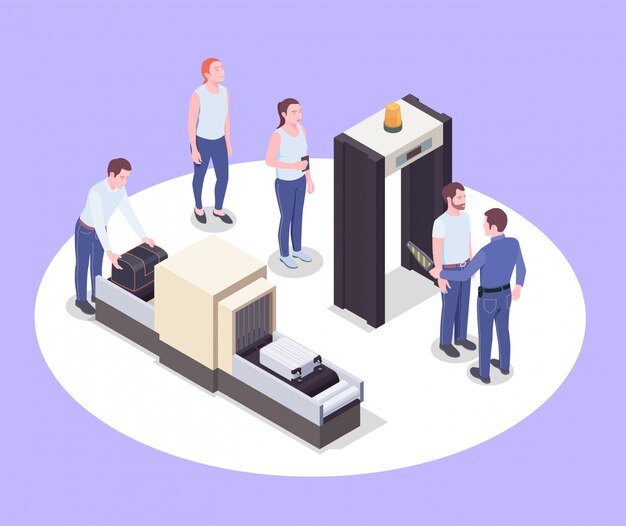Introduction
Efficient queue management is a cornerstone of excellent customer service. In bustling cities like Islamabad, where the demand for streamlined operations is ever-increasing, adopting advanced queue management systems has become a necessity. This blog delves into the world of queue management systems, their impact on customer experiences, and their role in shaping the service landscape across Pakistan.
Understanding Queue Management Systems
Queue management systems (QMS) are tools or technologies designed to streamline the flow of customers in various settings, such as banks, hospitals, government offices, and retail spaces. These systems help businesses manage customer queues efficiently, ensuring a smoother experience for both customers and staff.
Key Components of a QMS
- Token Systems: Customers receive a token that assigns them a position in the queue.
- Digital Displays: Real-time information is displayed to guide customers.
- Automated Call Systems: Announcements for the next customer are automated, reducing manual effort.
- Mobile Integration: Customers can book their place in line using mobile apps.
Benefits of Queue Management System
Enhanced Customer Experience
A well-implemented QMS reduces wait times and minimizes frustration, ensuring customer satisfaction.
Operational Efficiency
By automating the queue process, businesses can allocate resources more effectively and reduce manual interventions.
Data-Driven Insights
Queue systems often collect valuable data, such as peak hours and service durations, helping businesses improve their operations.
Improved Staff Productivity
With fewer manual tasks, staff can focus more on delivering quality service.
Queue Management System in Islamabad
Adoption in Various Sectors
Islamabad, being the capital of Pakistan, has a high demand for efficient services. Queue management systems have been adopted across various industries, including:
- Healthcare: Hospitals use QMS to manage patient flow and prioritize critical cases.
- Banking: Banks rely on QMS to handle large volumes of customers efficiently.
- Government Offices: Departments like passport offices and NADRA centers use QMS for smoother operations.
Technology Integration
Islamabad’s businesses and institutions are integrating advanced technologies like mobile apps and AI-driven solutions into their QMS, enhancing usability and efficiency.
Queue Management System in Pakistan
Growing Demand
The increasing urbanization and population growth in Pakistan have amplified the need for effective queue management solutions.
Industry Applications
- Retail: Supermarkets and malls use QMS to reduce long lines at checkouts.
- Telecommunications: Service centers handle customer queries with the help of automated queues.
- Transportation: Ticket counters and public transport systems employ QMS to manage passenger flow.
Challenges in Implementation
- Cost: High initial investment can be a barrier for small businesses.
- Awareness: Many businesses still rely on traditional methods, unaware of the benefits of QMS.
- Technical Expertise: Lack of skilled professionals to maintain and operate advanced systems.
The Future of Queue Management Systems in Pakistan
Technological Advancements
The future of QMS in Pakistan lies in innovations such as:
- AI-Powered Systems: Offering predictive analytics and personalized services.
- Cloud-Based Solutions: Enabling remote management and scalability.
- Mobile App Integration: Allowing customers to book, track, and manage their queues via smartphones.
Government Initiatives
The Pakistani government is taking steps to digitize services, including the implementation of QMS in public offices to enhance citizen satisfaction.
Private Sector Growth
More private businesses are recognizing the value of QMS in improving their operational efficiency and customer experience.
Conclusion
Queue management systems have become indispensable for businesses and institutions across Pakistan. By reducing wait times, optimizing resources, and enhancing customer satisfaction, QMS represents a crucial step toward modernization and efficiency. As technological advancements continue to shape these systems, the potential for a more streamlined service experience in Pakistan is immense.
FAQs
1. What is a queue management system?
A queue management system is a tool designed to streamline the flow of customers, reduce wait times, and improve service efficiency.
2. Where are queue management systems used in Islamabad?
They are used in hospitals, banks, government offices, and retail outlets across Islamabad.
3. What are the benefits of a QMS for businesses?
Businesses benefit from reduced wait times, improved customer satisfaction, operational efficiency, and valuable data insights.
4. What are the challenges of implementing QMS in Pakistan?
Cost, lack of awareness, and technical expertise are the main challenges.
5. What is the future of queue management systems in Pakistan?
The future includes AI-driven solutions, mobile integration, and wider adoption across public and private sectors.
